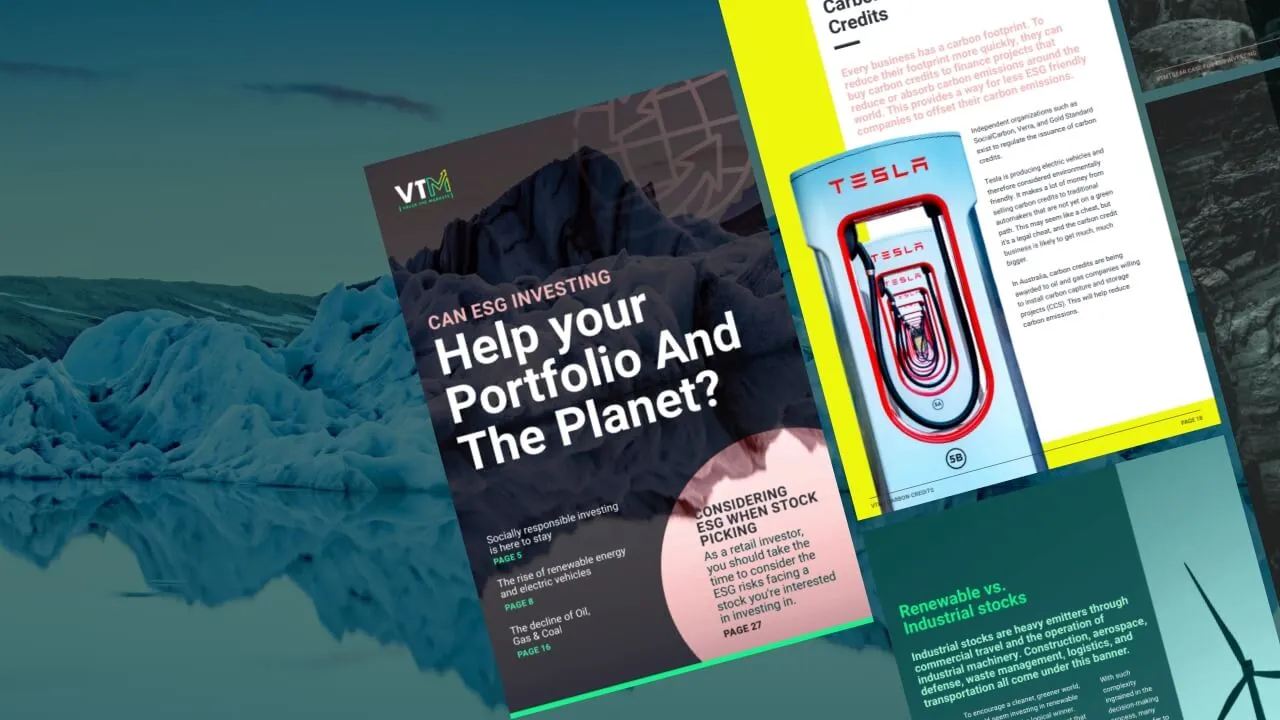Looking for more key themes for 2022? Download our free report.
ESG issues, or environmental, social and governance issues, have never been in focus to the extent that they are right now. Today more than ever, people are looking at the world and wondering how they can make it a better place.
Of course, we’ve also just come off the back of hearing about how likely climate disaster is as the world’s attention honed in on Glasgow and the COP26 summit.
This just so happens to have coincided with a huge increase in the number of retail investors, presumably in the form of people who have been looking to get a grip on their finances in the long months of lockdown.
Thankfully, one of the great things about investing is that you can use your money to affect positive change – by supporting companies with ideals that you believe in and shunning businesses with practices you disapprove of.
That’s why it’s a great idea to get clued up on ESG.
#The big news from COP26
We can’t really talk about ESG without delving into what happened at the COP26 summit in November. Here we saw a litany of deals signed and commitments made that will affect companies you can invest in. But what changes will these actually lead to?
Coal
One of the big targets at the Glasgow summit was reducing reliance on coal power.
Around 40 nations made a joint commitment to halt all investment in new coal power generation, both domestically and internationally. Major signatories including Canada, Poland, Ukraine and Vietnam agreed to end any reliance on coal by the 2030s or 2040s.
Additionally, more than 100 financial institutions and other organisations also agreed to stop financing coal development. Notably, the US, Australia, India and China did not sign up to the agreement.
While activists and pressure groups decried the agreements, arguing that they were not ambitious enough, the move was a knock for coal power plant owners and operators.
If they thought that was unsatisfactory, then they were crestfallen by the overarching COP26 agreement. After much wrangling, the final wording of the agreement listed a commitment to “reduce reliance” on coal, replacing earlier phrasing that called for the phasing out of coal.
The change in language, lobbied for by the likes of India and China, appears to give coal power a much higher life expectancy in some parts of the world.
Methane
A US- and EU-led agreement to cut global methane emissions by 30% was signed by more than 90 countries. President Biden said his plans in the US will reduce the methane released by the country’s oil and gas industry.
Leaks in pipelines are seen as a key issue here and the US Environmental Protection Agency could soon legally require operators to fix these leaks.
As such, pipeline companies like Enbridge (TSE: ENB), TC Pipelines (TSE: TRP) and Kinder Morgan (NYSE: KMI) may face higher costs, which will also likely be passed on to producers.
Fossil fuels
More than 20 nations and financial institutions, including the US, UK and The European Investment Bank, agreed to halt new financing for fossil fuel development overseas. Instead, these funds will be diverted to developing clean energy sources. This is expected to generate around $8bn a year for clean energy investment around the world.
Additionally, a small group of nations and territories, including France, California, Denmark and Costa Rica, formed the Beyond Oil and Gas Alliance (BOGA). This group committed to halting oil and gas production and each member will give a date for when they will cease handing out licenses for exploration.
Affected fossil fuel producers could include Berry Corporation (NASDAQ: BRY) and Chevron Corporation (NYSE: CVX), both of which have oil operations in California.
#ESG trends for 2022
So, as stated, COP26’s legacy will undoubtedly affect the landscape of many industries, but what will this look like as we move into 2022?
Sustainable investment products
Research published by Nielsen and FirstInsight in January 2020 indicated that sustainable brands are favoured by 73% of Millennials and 62% of Generation Z.
These more climate aware generations will exert more pressure for sustainable goods and services year by year. It seems logical that this influence will spread to company practices and investment products too.
On this note, it’s worth considering that Morningstar found that ESG funds captured $51.1bn of net new money from investors in 2020, more than double the prior year. Indeed, Bloomberg analysts predicted in February that ESG assets will be worth $53trn by 2025, with this set to represent over a third of the planet’s total assets under management.
Demand like this is too big to be ignored. Expect to see a big influx in the variety of ESG investment products on offer.
Climate commitments
With demand for ESG investment products, it also stands to reason that individual companies will want to make their stock a more ESG-friendly proposition. As such, we can likely expect to see an increase in businesses making ESG-related commitments.
These have already become fairly common. For example, early December saw ExxonMobil (NYSE: XOM) commit to reducing its direct and power-related emissions by 20% against 2020 levels by 2030.
It’s easy to be seduced by such commitments, but investors who want to invest their money responsibly would be wise to look out for companies who use these kinds of announcements as opportunities for greenwashing.
Disclosures
Away from COP26, the G7 in June committed to mandating climate-related financial reporting, which would be aligned with the recommendations of the Taskforce on Climate-related Financial Disclosures (TCFD).
Most publicly listed companies are not required to disclose their carbon emissions.
However, some jurisdictions, like New Zealand, currently require it. Among the G7 the UK has set April 2022 as the date from which some of the largest public and private companies will be required to report on their carbon emissions.
Though the United States has not yet formally set a date for bringing in TCFD recommended requirements, most analysts see it as only a matter of time. Some states like New York and Colorado require some form of reporting from a portion of businesses, but this is not standardised across the United States.
Making this form of reporting mandatory will be great news for ESG-conscious investors. Uniformity of reporting will allow for easy comparisons of different companies’ green credentials, as well as limit their ability to pull the wool over investors’ eyes with greenwashing.
#The ‘S’ in ESG
The social aspect of ESG has a tendency to be a little overshadowed by environmental and governance issues, particularly in the wake of an event such as COP26. However, 2022 is shaping up to be the year for social issues to really make their mark.
A number of reports have emerged which indicate that the pandemic has made people more socially conscious. For example, MSCI’s 2021 Global Investor Study found that 57% of investors thought social issues had become more important to them in the period.
This translates to spending too, as research from Deloitte released in October 2020 found that 62% of consumers were more likely to spend with companies who worked to ensure the safety and wellbeing of their employees during lockdown.
As such, we may see a trend of companies wanting to improve the welfare of staff and customers through 2022. This is an interesting issue as, unlike with carbon emissions, there are not a huge number of metrics by which you can measure a company’s social credentials.
Because of this, aspects likely to come under scrutiny include simple and quantifiable employee welfare measures, such as hourly pay and paid vacation days.
Already there are arguments being had about employee pay, with supermarket chains and fast-food restaurants complaining of a labour shortage, while employees complain that the $7.25 federal minimum wage is too low.
While some businesses, such as Amazon (NASDAQ: AMZN), Best Buy (NYSE:BBY) and Costco (NASDAQ: COST), have reacted by increasing their standard hourly pay, not all have followed suit.
Want to know more about our other key themes for 2022? Download our exclusive free report.

